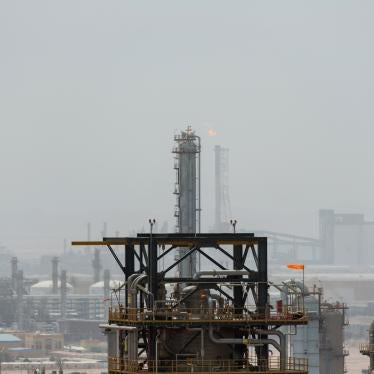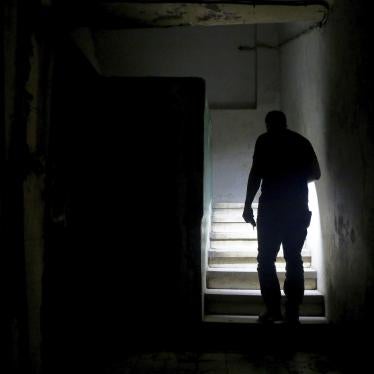On Health Day at the COP28 climate conference in the United Arab Emirates, 124 countries endorsed the COP28 UAE Climate and Health Declaration, which commits to putting health at the center of climate action. Yet just outside the conference venue, migrant workers are exposed to health harms associated with escalating effects of climate change and fossil fuels, including extreme heat and air pollution, without adequate protections.
The new declaration’s emphasis on the “need to combat inequalities within and among countries and pursuing policies that work towards achievement of sustainable development goals” rings hollow for millions of migrant workers in the UAE, who make up 88 percent of the population, and their families back home.
Human Rights Watch has recently documented how UAE authorities are externalizing climate risks to migrant workers, who are disproportionately exposed to extreme heat and lack adequate protection, by sending chronically ill workers home without remedy. This shifts the care burden to overstretched healthcare systems in migrant origin countries like Bangladesh, Pakistan, and Nepal that are themselves on the front lines of climate catastrophes despite being negligible emitters of greenhouse gas emissions.
The declaration fails to address fossil fuels as the main source of greenhouse gas emissions driving climate change and contributing to health harms, including air pollution. Human Rights Watch has shown that toxic air fed by fossil fuels is putting people in the UAE at risk. One worker described the UAE as a “factory that produces patients” as there are “very few people who leave here with a healthy body.”
The declaration notes the importance of “strengthening trans- and inter-disciplinary research” and “partnerships with populations most vulnerable to the health impacts.” However, UAE authorities severely restrict nongovernmental groups, ban trade unions, and have a zero tolerance policy for dissent, making it even harder for migrant workers to seek structural reforms. The government’s opacity around health data hampers research for evidence-based policymaking, and academics and journalists tend to self-censor to avoid reprisals.
The COP28 UAE Climate and Health Declaration reveals the wide chasm between the conference hosts’ portrayal of the country as a leader in health and climate action, and the health harms, including those linked to fossil fuels, from which it fails to protect its own residents.







